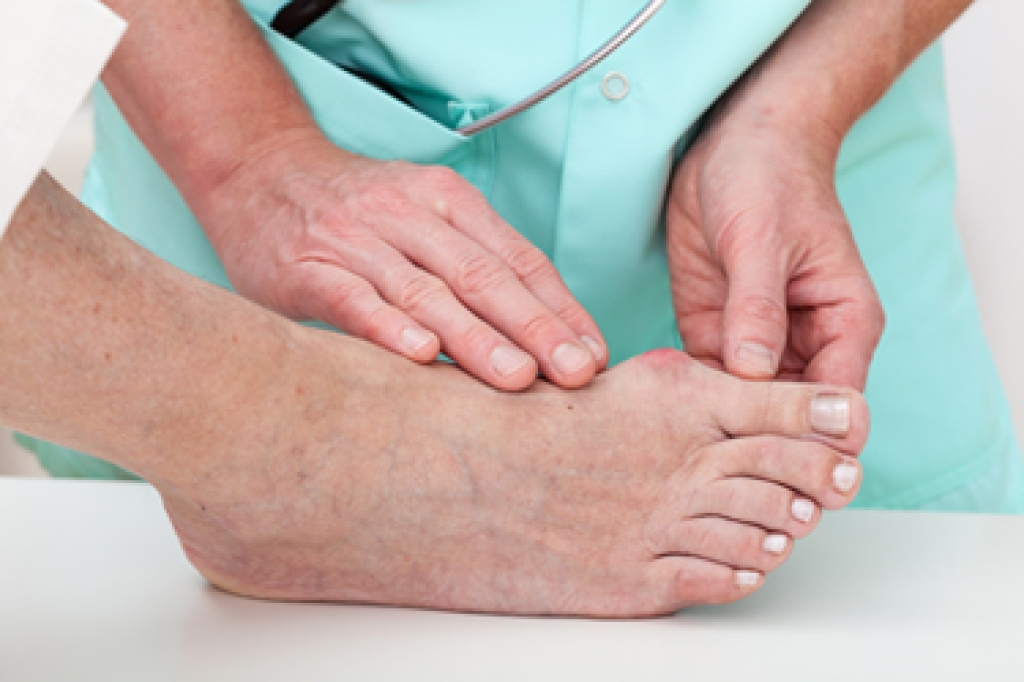
A bunion, termed hallux valgus, is a bone deformity of the big toe. This condition can cause the tip of the toe to push toward the smaller toes as the bottom of the toe joint juts outward from the foot. The resulting bump can prove to be painful as it changes the gait and rubs against the inside of the shoe. In some cases, a surgical procedure may be the only option for reducing pain. This may be successful in straightening out the joint, in addition to stabilizing the gait. It can also help to prevent hammertoe and other foot abnormalities from developing. Deciding on bunion surgery depends on various factors, such as the severity of the bunion, and whether it is related to osteoarthritis. Additionally, the impact it may have on completing daily activities or participating in sporting activities may contribute to making this decision. Side effects may include nerve damage, inflammation, and permanent stiffness. It is beneficial to explore this with a podiatrist before deciding on this type of surgery. To find out whether bunion surgery is the right option for you, it is suggested that you consult a podiatrist for an exam and diagnosis.
If you are suffering from bunions, contact one of our podiatrists of Carolina Foot & Ankle Specialists. Our doctors can provide the care you need to keep you pain-free and on your feet.
What Is a Bunion?
A bunion is formed of swollen tissue or an enlargement of boney growth, usually located at the base joint of the toe that connects to the foot. The swelling occurs due to the bones in the big toe shifting inward, which impacts the other toes of the foot. This causes the area around the base of the big toe to become inflamed and painful.
Why Do Bunions Form?
Genetics – Susceptibility to bunions are often hereditary
Stress on the feet – Poorly fitted and uncomfortable footwear that places stress on feet, such as heels, can worsen existing bunions
How Are Bunions Diagnosed?
Doctors often perform two tests – blood tests and x-rays – when trying to diagnose bunions, especially in the early stages of development. Blood tests help determine if the foot pain is being caused by something else, such as arthritis, while x-rays provide a clear picture of your bone structure to your doctor.
How Are Bunions Treated?
- Refrain from wearing heels or similar shoes that cause discomfort
- Select wider shoes that can provide more comfort and reduce pain
- Anti-inflammatory and pain management drugs
- Orthotics or foot inserts
- Surgery
If you have any questions, please feel free to contact our offices located in Mount Pleasant and Charleston, SC . We offer the newest diagnostic and treatment technologies for all your foot care needs.


